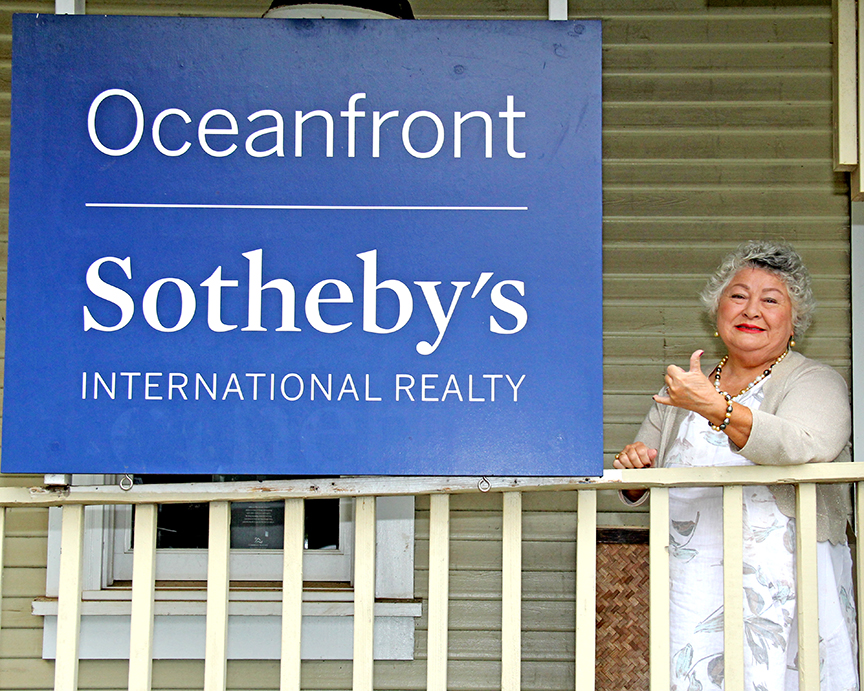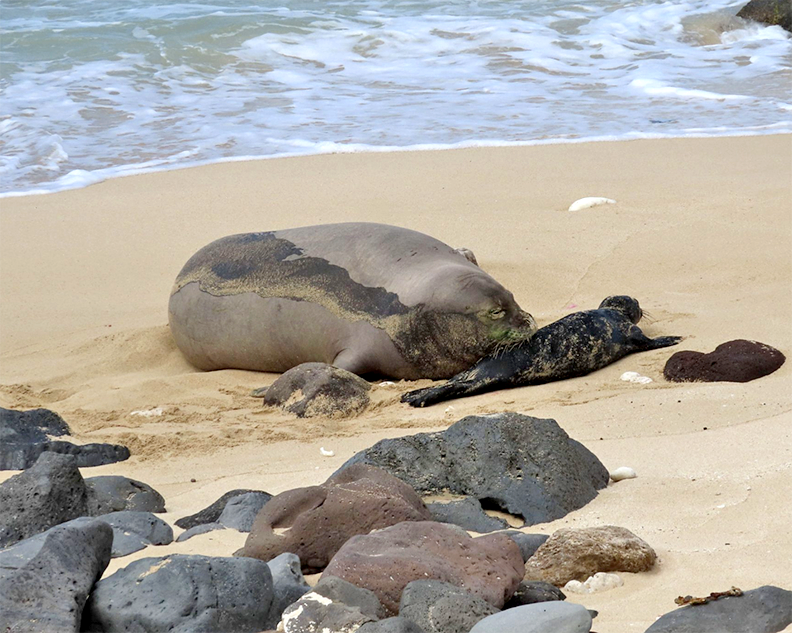By Léo Azambuja
 Back in 2009, I was doing a lot of freelance writing and photography gigs. One of them was a weekly article on local musicians. I was really fortunate to meet some of the best musicians on this island. And lucky for me, I love live music.
Back in 2009, I was doing a lot of freelance writing and photography gigs. One of them was a weekly article on local musicians. I was really fortunate to meet some of the best musicians on this island. And lucky for me, I love live music.
The gig only lasted six months, but during that time, I had the freedom to pick whoever I wanted to feature. It really was one of the best jobs I ever had, despite the sub-par pay. Every single week, for six months, I attended at least one live music event, and got to talk story with all the musicians.
One of those musicians I met was “Uncle” Nathan Kalama. Earlier this year, I had the chance to interview him again for our March issue. We portrayed a concert put together to pay homage to this unique artist who keeps reinventing the Hawaiian culture. I was surprised he remembered me after almost 10 years.
For this month’s issue, I interviewed him again, along with Maka Herrod. What these guys are doing has a lot of consequences, positive consequences, in my point of view, for the local culture.
The Kaua‘i Mokihana Festival gives many musicians and hula halau the ability to step out of the box, reinventing and evolving the Hawaiian culture, whether they are newcomers or experienced performers.
To me, this is utterly important. I always thought of culture as a dynamic, evolving thing. As much as it is important to preserve old traditions, the local culture is something that we live everyday. It is still evolving reinventing itself on a daily basis. Just look at the food, the pidgin language, the customs. It’s only fair that music and hula are allowed to evolve as well.
If you have a chance to attend any of the festival’s events, go. If you see “Uncle” Nathan, go talk story with him. He’ll be pleased.
In those days when I was writing about music, kumu hula Doric Yaris put together a mega anniversary celebration for his halau, at the Kaua‘i Community College Performing Arts Center. I think it was a 20- or 25-year celebration. I interviewed him in the morning, and told him I’d come back later during the show just to get a few shots, and then go home. It was never my intention to watch the whole celebration, mainly because hula wasn’t my thing.
It just happened that the show was so gripping, stunningly beautiful and entertaining that I stayed for the whole thing, all five hours of it. Doric really was one of those people who put his heart in what he did, and he did it with a lot of talent. He was gone too soon, passed away really young a few years ago from some health problems. I’m glad I got to meet him, hear him talk about his passion and watch his art.
Another great musician who was gone too soon was Mike Young. I wrote an article on him, but I had actually met him through surfing, so we were friends before I penned his life story. The only thing he did better than to create music was to spread his aloha. Mike always had a way of making everyone feel special.
There were so many other musicians who opened up their lives to me during those days. I really appreciate all those stories, and cherish all those connections.
I’m writing all this, because when I had the chance to interview Uncle Nathan this last time, that’s when I really understood the magnitude of the Kaua‘i Mokihana Festival. It is an even like no other. It’s not just that it pushes innovation. It also nurtures new talent, establishes strong bonds between participants, and really caters to the audience.
Over the years, the event moved locations quite a few times. The reason given by Uncle Nathan is an explanation that only a true artist would give: I wanted to festival to go to the people, rather than the people go to the festival.
If you haven’t gotten your tickets to the Kaua‘i Mokihana Festival, do it soon. It may be sold out before you know it. Even if hula is not your thing, it will be very entertaining. I guarantee. You will not see a music and hula festival like this anywhere else.
Discover more from ForKauaiOnline
Subscribe to get the latest posts sent to your email.




Leave a Reply